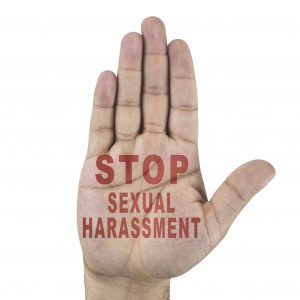Students At Elite Law Schools Demand Increased Sexual Harassment Protections For Federal Clerks
Let's actually do something to stop sexual harassment in the federal judiciary.

(Image via Getty)
There’s a real problem in the federal judiciary. Whether you look at disgraced retired judge Alex Kozinski, who was accused of pernicious sexual harassment in 2017; the resignation of district court judge Carlos Murguia, who was reprimanded for his “inappropriate behavior”; the stymied inquiry into Kavanaugh’s behavior which disappeared because he left the D.C. Circuit when he got elevated to the Supreme Court; or the powerful testimony of Olivia Warren, who detailed the sexual harassment and abuse she was subjected to during her tenure at the Ninth Circuit by the late Judge Stephen Reinhardt, it is clear the legal industry needs to do something.
The lifetime appointments of federal judges — and the inevitable power they wield, particularly for those that envision a career in the upper echelons of the profession, is enormous. So even in the face of sexual harassment allegations, the actual consequences for misconduct in the federal judiciary will be remains uncertain. The Judicial Conference working group focused on misconduct reforms was formed two years ago, and though they’ve released a report on how to change policies, actual change for clerks and other court employees on the ground hasn’t been realized.

Legal AI: 3 Steps Law Firms Should Take Now
Now law students from some of the best law schools in the country are urging something concrete be done about the ongoing problem. Yesterday, the Harvard Women’s Law Association, Stanford Law School for Gender Violence Prevention, Women of Stanford Law, Yale Law Women, and the Yale Law School Title IX Working Group, and the national law student group, People’s Parity Project, signed a letter to the Judicial Conference asking for specific reforms, specifically: publicly reported federal judiciary “climate surveys,” expanding the Office of Judicial Integrity, centralized employment discrimination responses for federal judges, and information-sharing between law schools and the federal judiciary for reports of judicial misconduct.
And they want it quickly, because they’re frustrated with the thus far slow response to the problem:
We are frustrated by the slow progress in combating misconduct in the judiciary, and we urge immediate action… The brave testimony of Olivia Warren is a reminder that these issues must not be ignored. We remain committed to ensuring the federal judiciary is a safe workplace and hope to serve as a resource for future reforms.
While the letter, available in full below, provides concrete steps to combat the “unique closeness of a chambers environment, the early career stage of most law clerks, the importance of clerking relationships to future employment, and the opaqueness of available remedies have made law clerks extremely reluctant to report misconduct,” there’s also a recognition that this represents only one step in the process:
Sponsored

The Business Case For AI At Your Law Firm


Legal AI: 3 Steps Law Firms Should Take Now

Navigating Financial Success by Avoiding Common Pitfalls and Maximizing Firm Performance

Generative AI In Legal Work — What’s Fact And What’s Fiction?

“This is not the first step to address misconduct, and it won’t be the last,” said Yale Law student Anna Kaul, Advancement Chair for Yale Law Women. “We will continue to call for transparency and accountability to ensure that judicial employees are afforded the safety and respect that all workers deserve.”
It may not be the final step in the process, but it is certainly a big one in the right direction.
 Kathryn Rubino is a Senior Editor at Above the Law, and host of The Jabot podcast. AtL tipsters are the best, so please connect with her. Feel free to email her with any tips, questions, or comments and follow her on Twitter (@Kathryn1).
Kathryn Rubino is a Senior Editor at Above the Law, and host of The Jabot podcast. AtL tipsters are the best, so please connect with her. Feel free to email her with any tips, questions, or comments and follow her on Twitter (@Kathryn1).
Sponsored

Generative AI In Legal Work — What’s Fact And What’s Fiction?









